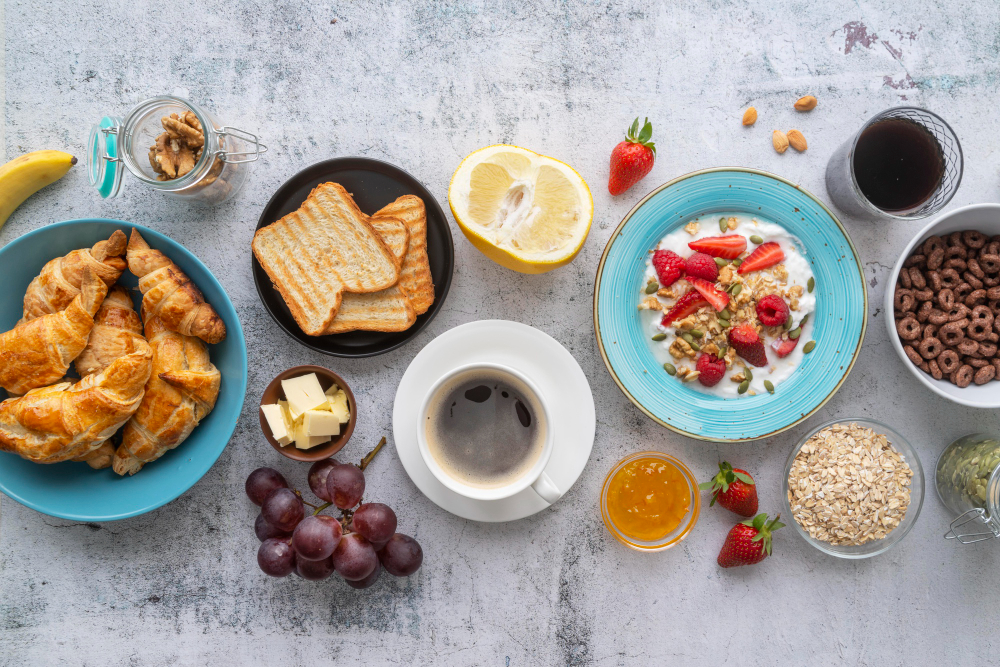Breakfast is an important part of a healthy morning routine. How important is a balanced breakfast, whether there is an ideal one and whether we should have breakfast and at what time.
According to research by King’s College London, regular meals each day play an important role in maintaining health. We start the day with breakfast, although there are different theories about when to have breakfast.
Also read this: The more you eat these foods, the more you lose weight
Traditional Chinese medicine recommends a centuries-old recipe, “one should follow the organic clock”. If you eat breakfast an hour or two after getting out of bed, that is the best time because then the stomach is rested and strong, so the food is easily digested.
People who do not eat breakfast are usually weak, they are constantly cold, their stomachs are bloated, and they do not digest food well.
Dietitians state that the best time for breakfast is one, two or three hours after waking up, although each of us has our own timing, according to the rhythm of life.
Also read this: Five different types of keto diets
“The best time for breakfast is determined by our state of health and our activities. It is important that no more than three hours pass after waking up and that the body does not feel very hungry and weak,” said Marisa Karp, dietician.
Our body rests and digests food during the night. There is a long period of time between going to sleep and waking up, so it often happens that there is a natural drop in blood sugar.

“During the night, while we sleep, our body digests dinner, recovers and rests. Since many hours have passed since the last meal until the morning, this led to a natural drop in blood sugar,” said Hana Santoni.
Breakfast after waking up restores blood sugar, providing the body with enough glucose for normal functioning.
Also read this: Simple recipes for homemade detox drinks
“If you skip breakfast or wait too long, you’re likely to feel tired and run down. The stress hormone cortisol will rise, disrupting the body’s natural circadian rhythm and hormone balance,” says Santoni.
“Skipping or delaying breakfast can also make it harder to eat a balanced diet throughout the day because you’re more likely to feel the need to eat more at lunch, so skipping meals increases the chance of overeating and choosing less healthy options,” notes Karp.

Breakfast more than three hours after waking up is a late breakfast. And depending on when we have breakfast, lunch comes as well. According to dietitians, it is not recommended to completely skip breakfast.
When possible, it is ideal to have breakfast at the same time every day. That’s because our bodies work according to an internal clock, or circadian rhythm, Karp explains.
Also read this: Insulin resistance – when the cells are hungry, and the waist is getting wider
This class works best when habits, including meals, are done according to a set schedule. “By eating around the same time every day, our bodies anticipate what’s coming and get used to functioning within that framework,” says Karp.
Santoni supports this claim by pointing out that consistent routines and eating patterns are definitely beneficial for metabolic health.

Of course, it is difficult to plan your schedule every minute, sometimes we will be late and sometimes early, but it would be good if we try to create routine and consistent habits.
Also read this: Is coconut oil a poison or a miracle cure?
In addition, for breakfast, it is best to focus on meals rich in protein and fiber, because they easily create a feeling of satiety and give us the energy we need to start the day.
Source: www.sitoireseto.com


